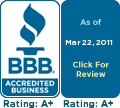|
It's not uncommon for an employer to
go into shock upon
receipt of an audit
bill for
a recently-expired Workers' Compensation insurance
policy. Sometimes the increases in premium that result
from an audit are unexpectedly high. Occasionally, they
are so extreme as to threaten the financial viability of
the company.
You Can
Dispute Your Workers Comp Premium Audit Charges and Win
But it's vital to do your homework and know what
protections and resources may be available to you.
First, you need to devote some time and effort to understanding
the causes of
the premium increase. To do that, you first need to
refresh yourself with the basics of
how Workers Comp premiums are calculated.
If your instinct is to dispute the amount sought by the
insurance company on the audit, because it seems
outrageous and unfair and unexpected, your initial
outrage and frustration may not serve you well. It may
well be completely justified, but the system for
disputing Workers Compensation insurance premium charges
doesn't much care if the premium charges are outrageous,
unfair, and unexpected. The system is only concerned
with whether or not the rules have been broken.
Insurance companies are accustomed to having
policyholders get upset over large audit bills, and
their response is often to dismiss your protests out of
hand. To get results, you will have to bespecific in
your complaints about what you feel are audit errors.
Figure Out What's Changed
To figure out if you have a basis for disputing the
audit, you'll need a few documents: the originalpolicy, the
audit billing
statement, and
the audit
workpapers.
First, examine how the estimated
premium on
the policy had
been calculated. Look at whatclassification
codes were
used, and how
much payroll was
assigned to each classification. Thencompare that
to the audit billing statement. If a more
expensive classification is
used on the audit that was not on the original policy,
that may be a reversible error.
Look at the estimated
payrolls used
on the original policy and compare those
to the payrolls used on the audit. If
payroll has increased on the audit (as it often does)
use the audit workpapers to review how the auditor
determined how much payroll to pick up. Examine what
documents were examined by the auditor, and if the
auditor had to make any assumptions due to some
documents not being available.
If overtime
pay is
significant in your operations, make sure the audit
workpapers indicate that an adjustment has been made to
remove the premium portion of overtime pay. Almost all
states allow the premium portion of overtime pay to be
excluded, as long as payroll records allow the auditor
to break it out.
The audit workpapers should also explain how the auditor allocated
payroll tor allocated
payrollamong different classification codes. That is, it
should explain why the employers of certain departments
were assigned to particular classifications. If the
auditor has misunderstood the nature of the work done by
some employees, it may have resulted in the wrong
classification (and thus the wrong manual rate) being
used to compute premiums for those workers.
Check what charges may have been made on the audit for uninsured
subcontractors or
independent contractors. Insurers are paying increased
attention to this, as in most states an uninsured
subcontractor has the same rights as an employee of
yours to file a claim under your policy. If this is a
cause of significant premium charges, you may well want
to determine if you have (or can obtain) certificates of
insurance from these subcontractors.
Also look
closely at
how any subcontractor payroll has been classified.
Also compare the experience modification factor on the
policy to the modifier on the audit.Most states prohibit
increasing the modifier late in the policy term, so if
the modifier is higher on the audit than on the policy,
it may well be a reversible error. The same applies to
schedule credits and debits.
Once you've pinpointed what you feel are errors in the
audit, communicate
these in writing to
the insurance company's audit department. If you do not
get what you feel is a satisfactory result, you may want
to contact your state's department
of insurance for
assistance. You may also want to appeal technical issues
through the rating
bureau appeal process in
your state. The particular process will vary from
state to state, as Workers Compensation insurance is
regulated by state government agencies.

If the additional
premium sought is large, and
you cannot resolve the dispute using the above means,
the insurance company may well threaten to file suit
over the additional premium. Keep in mind that this can
be a double-edged sword for the insurer--that is, there
are arguments that a policyholder can sometimes
successfully advance in court that cannot be
successfully used outside of the legal arena.
If your company finds itself embroiled
in an audit dispute of such magnitude, Advanced
Insurance Management consultants may well be of
assistance in advising you as you consider your options.
If your insurer has initiated litigation over a disputed
Workers Compensation insurance premium, you may wish to
have your attorney contact us regarding serving as an expert
witness in
the matter.
Please email: AIM@cutcomp.com or call
us at 800-288-9256 with
questions on disputes,
audits, classifications, experience modifiers, or
other aspects of Workers Comp premiums and audits.
|










